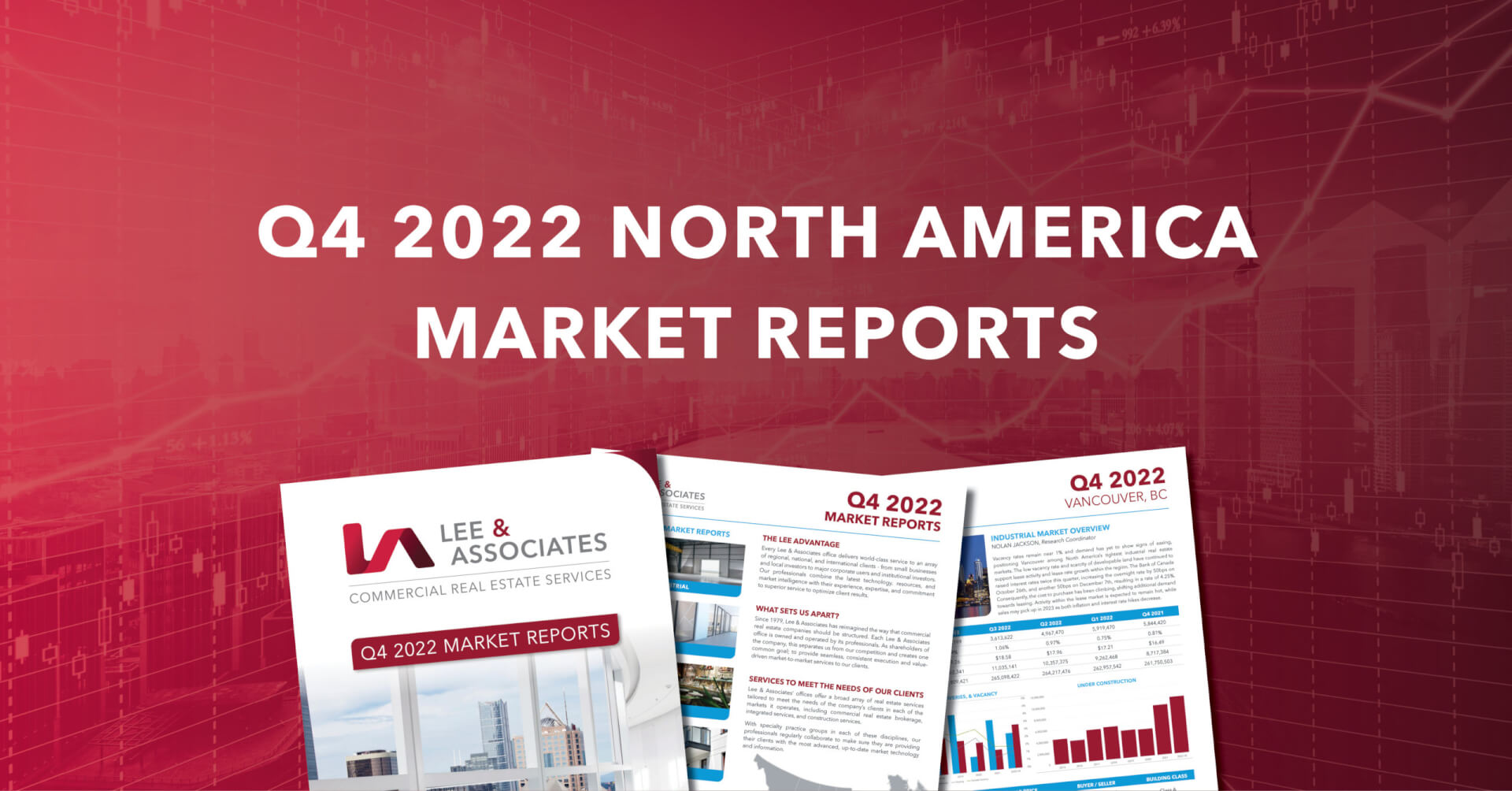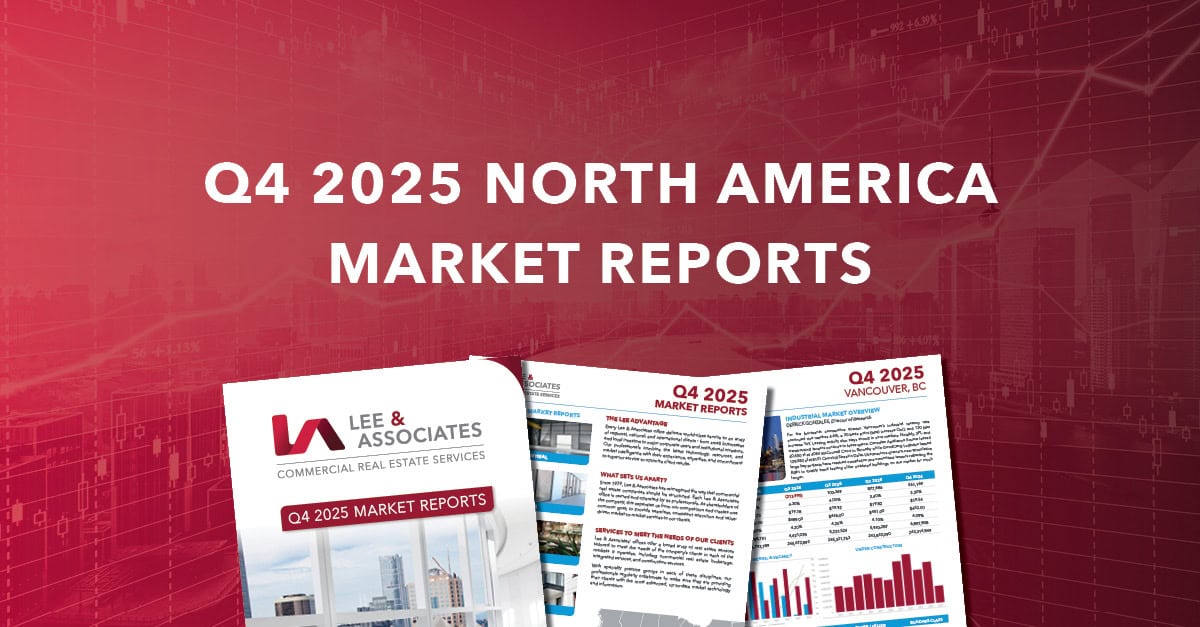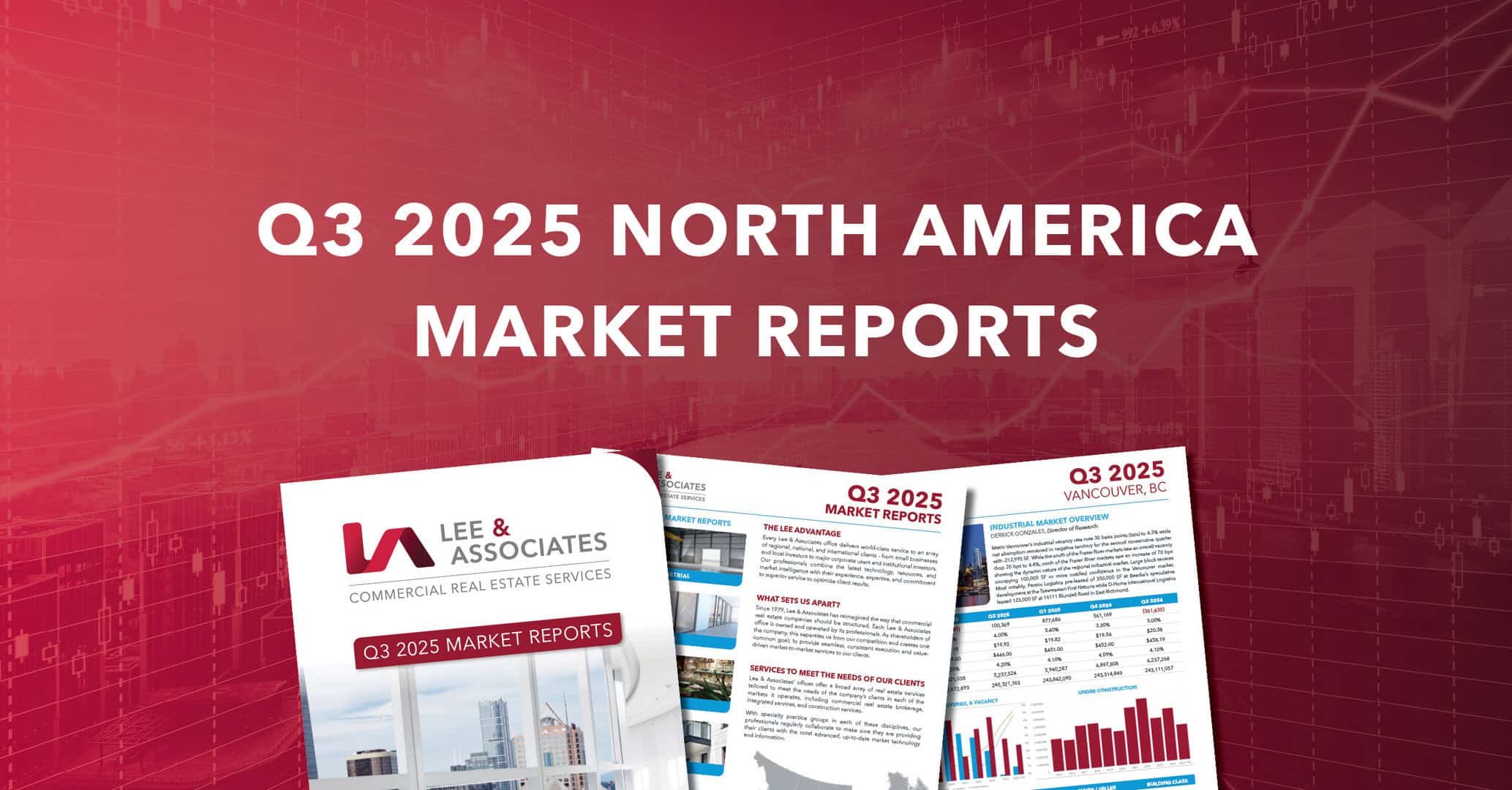Metro Vancouver Industrial Market
Vacancy rates remain near 1% and demand has yet to show signs of easing, positioning Vancouver among North America’s tightest industrial real estate markets. The low vacancy rate and scarcity of developable land have continued to support lease activity and lease rate growth within the region. The Bank of Canada raised interest rates twice this quarter, increasing the overnight rate by 50 basis points on October 26th, and another 50bps on December 7th, resulting in a rate of 4.25%. Consequently, the cost to purchase has been climbing, shifting additional demand towards leasing. Activity within the lease market is expected to remain hot, while sales may pick up in 2023 as both inflation and interest rate hikes decrease.
Metro Vancouver Office Market
The Bank of Canada continued to increase interest rates throughout the fourth quarter of 2022, however, inflation has started a downward trend. Due to a year of increased expenses, the last quarter has seen more sublease space come on the office market as some firms try to recuperate costs. Nevertheless, the Metro Vancouver office market continues to outperform other major North American cities due to the draw for large firms – specifically tech – to set up shop here. Not only is Vancouver a business hub that is a great place to live, we have an existing talent pool of employees and a low dollar for large American companies to take advantage of. This can be seen with the example of Amazon – as they are still committed to 1.1 million SF in the upcoming Post building in the downtown core even after cutting costs through thousands of global layoffs.
In the short term, it is expected that more sublease space will become available to the market as we face a period of adjustment post-COVID. Vacancy will rise further, specifically in the downtown core as the suburbs have a much tighter office market. Although in the long term, we expect Metro Vancouver to continue to perform well.
Metro Vancouver Retail Market
Due to a year of high inflation and ever-increasing interest rates, consumer purchasing power as well as confidence was low heading into the 2022 holiday season. For this reason, savings were top of mind as shoppers cut back on non-essential spending and searched for deals. COVID also caused shopping patterns and priorities to change, with more consumers wanting a seamless online/offline experience. Throughout 2023 to draw buyers back, retailers will need to prioritize improving the consumer experience with promotions, quality service, entertainment, and smooth transition from online to in-person.
However, landlords in Metro Vancouver needn’t worry about the decrease in consumer spending, as the low vacancy paired with the unique building constraints for new retail space keeps the area’s demand, and therefore retail rental rates and sale prices, high.
Stay up to date – to receive our market insight as soon as they become available, subscribe here.




